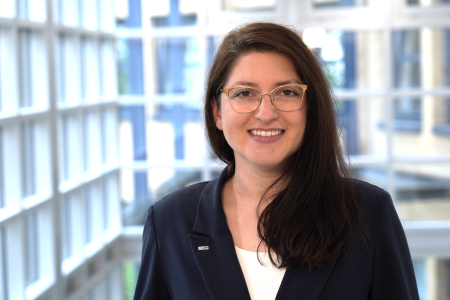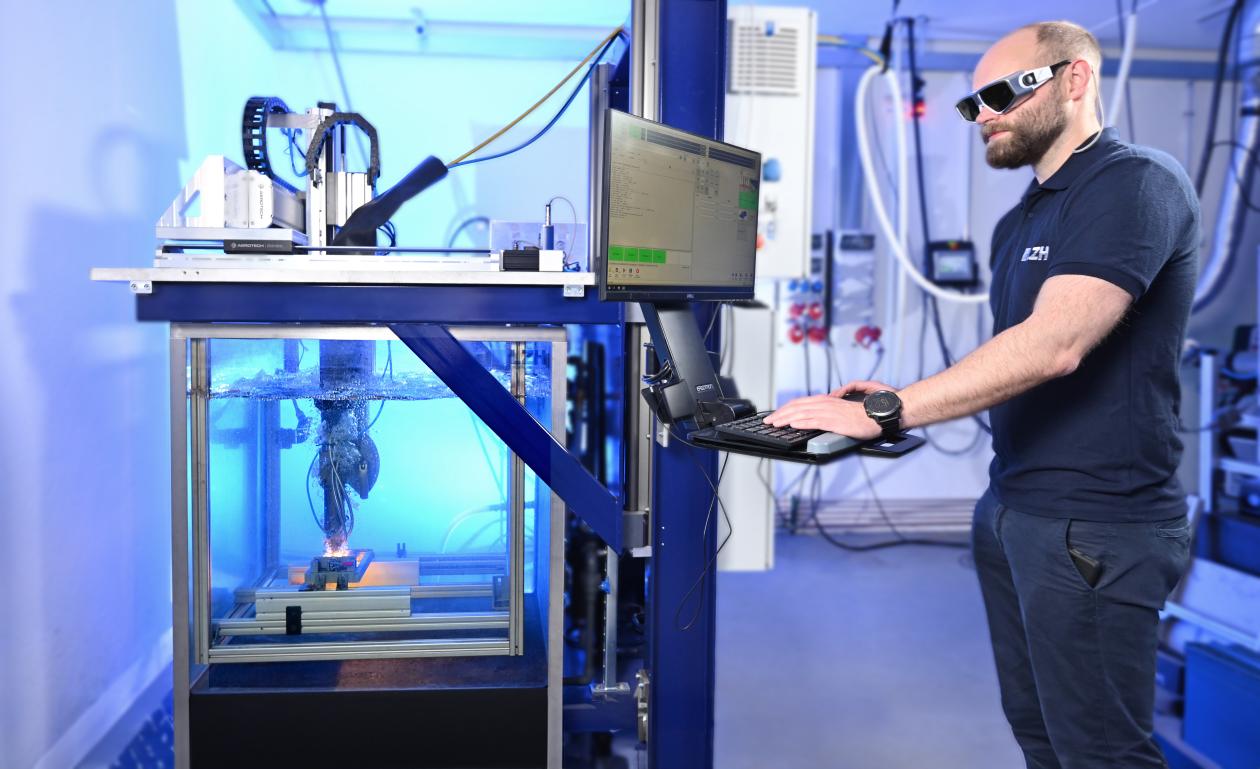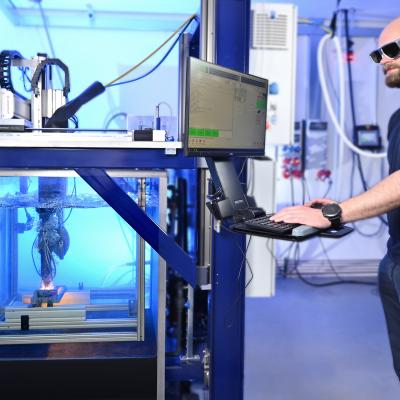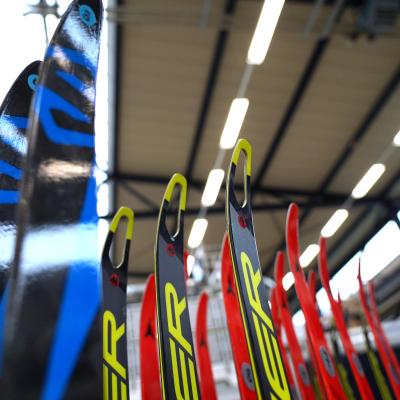Laser-based processes open new ways to tackle environmental impacts: LZH scientists are working with partners to develop a method for automated underwater cleaning of ship hulls by using lasers. Biofouling, the marine growth of shells and algae on ship hulls, increases the flow resistance of ships, leading to higher fuel consumption and emissions. The new process is intended to reduce the time ships spend in dock.
Laser processing head for coaxial deposition welding
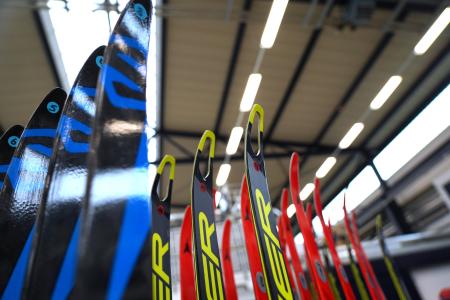
Laser-based processes can make production more efficient and sustainable. Additive manufacturing processes, for example, can save material and, depending on the application, also energy. The LZH's latest laser processing head for coaxial deposition welding clearly demonstrates how additive manufacturing can supplement or replace conventional processes, whether in the production of components, their modification or their repair. For example, highly stressed components can be provided with a protective coating using wire deposition welding.
Micro material processing with the laser
Lasers can be used to specifically modify surface properties for a wide range of applications. One example is skis with innovative microstructures: they reduce friction and ensure higher speeds when skiing, even without the now-banned fluorine-containing ski wax that was used in professional sports. LZH scientists have developed a method to use lasers to process the curved ski surfaces.
Niedersachsen ADDITIV: The SME partner for 3D printing
Niedersachsen ADDITIV focuses on the transfer of research. The project supports companies that want to integrate 3D printing into their production or develop it further in a practical and needs-oriented manner – free of charge and independent of manufacturers. At the Hannover Messe, the experts from Niedersachsen ADDITIV will be presenting their services for companies from Lower Saxony in Hall 16 at the Lower Saxony Pavilion “Digitisation” (Stand F11).
LZH partner of Technology & Business Cooperation Days
LZH is partner and co-organizer of the Technology & Business Cooperation Days of the Enterprise Europe Network (EEN), which take place during the Hannover Messe. At the networking event, companies, start-ups and research institutions can connect, exchange ideas and thus find partners for business, technology or research cooperation. Registration for the Technology & Business Cooperation Days is free of charge and possible until April 8, 2024.
Laser Zentrum Hannover e.V. (LZH)
As an independent, non-profit research institute, the Laser Zentrum Hannover e.V. (LZH) stands for innovative research, development, and consulting. Supported by the Lower Saxony Ministry of Economics, Transport, Construction and Digitalization, the LZH is dedicated to selflessly promoting applied research in the field of photonics and laser technology. Founded in 1986, almost 200 employees are now working at the LZH.
The LZH offers solutions to current and future challenges with its smart photonics. Along the process chain, natural scientists and engineers work interdisciplinary together: from component development for specific laser systems or for quantum technologies to process developments for a wide variety of laser applications, for example for medical and agricultural technology or lightweight construction in the automotive sector. 19 successful spin-offs have emerged from the LZH to date. Thus, the LZH creates a strong transfer between fundamental science, application-oriented research, and industry - and uses light for innovation.
